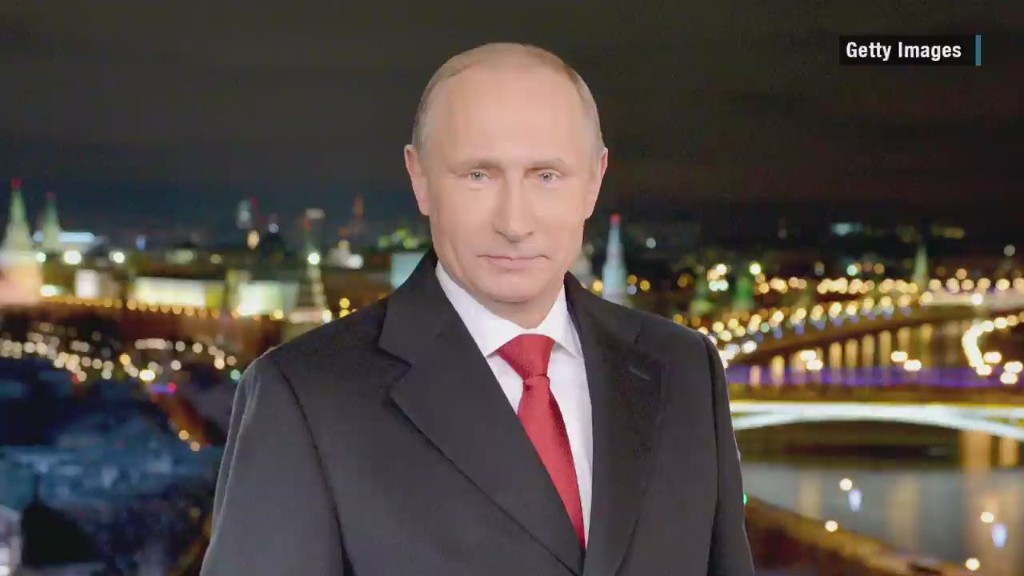
Sanctions imposed on Russia because of its support for separatists in Ukraine could shrink the economy by as much as 9% over time.
That's the view of the International Monetary Fund, which published a regular report on Russia this week.
Collapsing oil prices and Western sanctions on big banks and energy companies tipped Russia into a financial crisis at the end of 2014. The ruble plunged and inflation soared.
Russia jacked up interest rates in response, sold dollars and euros to defend its currency, pumped money into the banks and slashed government spending.
The situation has stabilized this year, although the ruble has come under pressure again recently, but the economy is already deep in recession.
The IMF expects Russian GDP to shrink by 3.4% this year, as falling real wages, the higher cost of borrowing and shattered confidence hit domestic demand. And western sanctions, and Russia's retaliatory ban on imports of food and agricultural products, could be responsible for nearly half that decline.
Related: Russia cuts rages again to prevent deeper slump
But longer term, the impact could be even more significant, as the loss of access to foreign finance and technology hurts investment and makes Russia's economy even less efficient.
"Prolonged sanctions could lead to a cumulative output loss over the medium term of up to 9% of GDP," the IMF said.
Russians are feeling the pain. Unemployment has begun to creep up from very low levels, and millions more have fallen into poverty.
Anemic growth could return in 2016, according to the IMF, but Russia will have to get serious about reform if it wants to avoid relative stagnation.


